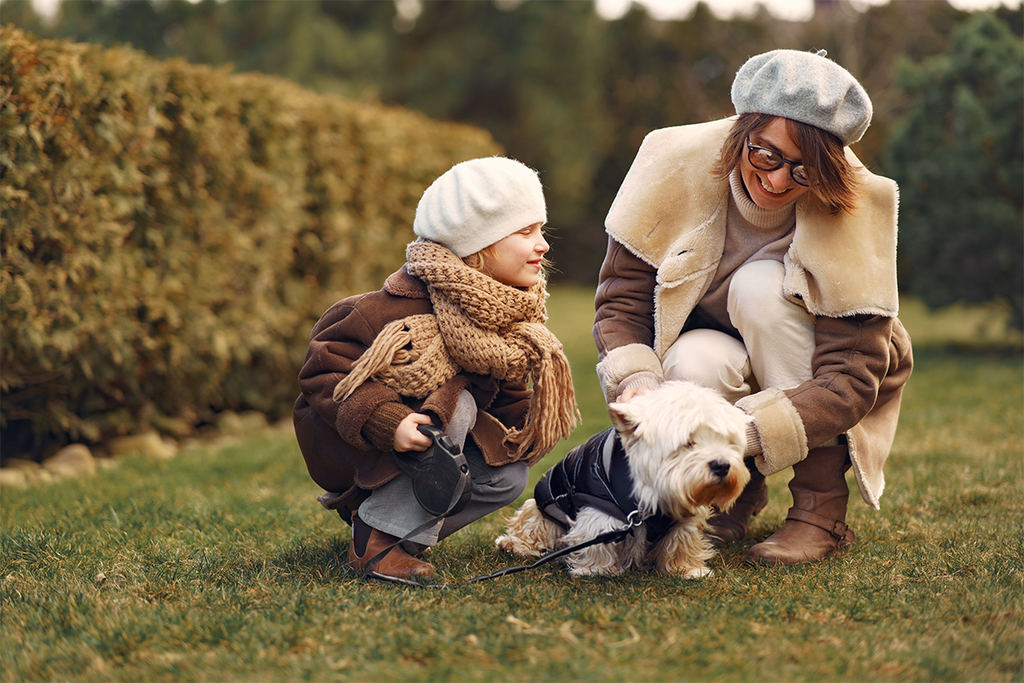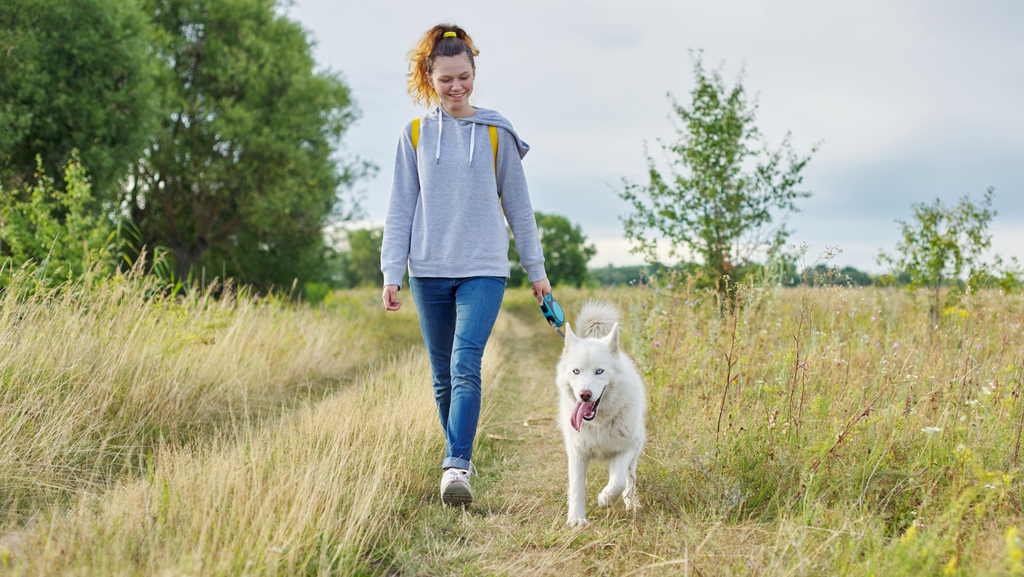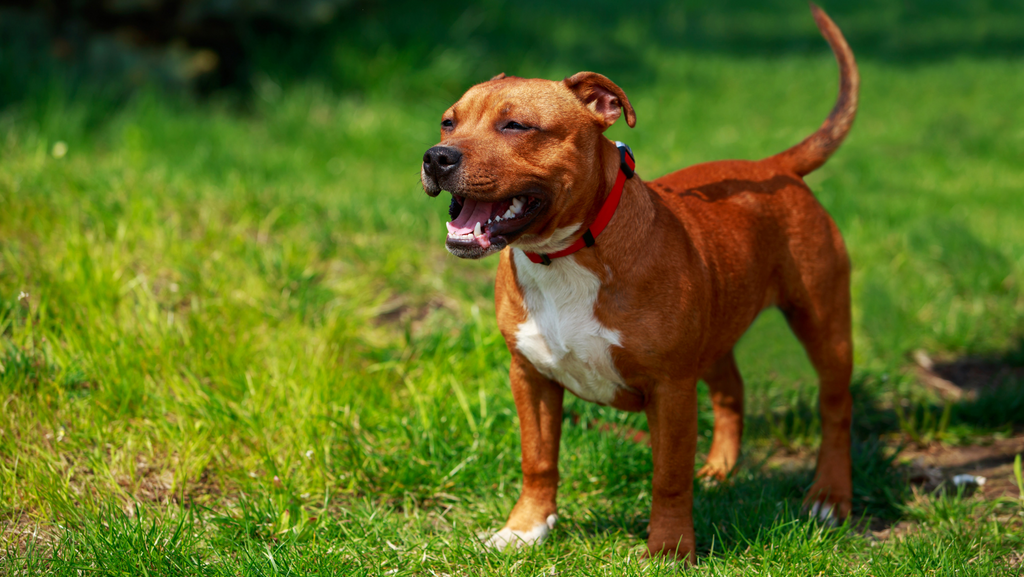Best Treats For Dogs - A Selection Guide

We all like to reward our furry friends with a tasty snack from time-to-time, but we also want to make sure that we’re only offering the best treats for dogs in a way that won’t be detrimental to their health.
Here we provide a run-down on everything you need to know so you can make the best decision about how to reward your pooch.
Types of treats for dogs
Just as humans each have different tastes and preferences when it comes to food, so do our four-legged companions and there’s a delicacy to satisfy every palate.
Here’s a run-down of the main types of treats for dogs you can choose from to find the one that best suits your pooch:
-
Crunchy treats:
Available in a wide variety of sizes, shapes and flavours, crunchy treats for dogs include things like biscuits, bars and cookies. Generally with a very low moisture content, crunchy treats often include ingredients such as peanuts, honey, yogurt, fruits, vegetables, fish and chicken. Some also contain grains, preservatives and artificial colours and flavours.
-
Soft, chewy treats:
Soft treats for dogs have a higher moisture content (around 25%) and often contain humectants (antibacterial moistening agents) which prevent them from drying out so they stay soft, chewy and easy for your dog to bite into. Because they are soft and easy to chew, they’re a great choice to use as a reward when training as they can be consumed quickly. They often also have a strong odour which most dogs find highly appealing.
-
Freeze-dried, dehydrated or jerky treats for dogs:
Typically made from a single protein ingredient such as chicken, beef, liver or seafood which has been dehydrated, they are often preservative-free while still having a long-shelf life. Dogs particularly like these for their strong flavour.
-
Animal parts:
Animal parts such as pig’s ears or rawhides are popular treats for dogs, but should be used with caution. While tasty, pig’s ears can be very high in fat and are often heavily processed and treated with a range of potentially harmful chemicals. Rawhide is another animal part which when used as treats for dogs can be beneficial in supporting your dog’s oral and dental health, but can be the cause of gastrointestinal obstructions and other complications.
-
Animal bones and hooves:
While generally not recommended (especially when cooked), when served raw and with constant supervision, many dogs can safely enjoy a treat of raw animal bones or hooves.
Why do dogs need treats?

Dogs learn the behaviours we want them to demonstrate through positive reinforcement, when they receive acknowledgement for a job well-done—and tasty food treats are an easy way to provide immediate and timely recognition to your dog in a way that is highly-satisfying.
There are a range of ways to provide positive reinforcement to your dog, and while dogs will usually respond well to non-food rewards such as toys, play, walks, ‘happy talk’ or verbal praise and rubs or petting, most dogs consider a tasty food treat as one of the most high-value rewards.
When to give treats
While treats can simply be a great way to show love to your dog, they can also be particularly valuable:
- when training your dog
- to help fight boredom, and
- to support their health.
Training
Treats are a valuable tool when training your dog, used as a reward for following your command, or to recognise good behaviour like going to the toilet in the designated spot, allowing you to clean their teeth or have their fur clipped, or remaining calm during a stressful situation.
Fighting boredom
Treats can also be a great way to help your dog fight boredom. Many of us spend most of the day away from our homes while at work, school or other activities. Dogs are highly social animals and can fast become bored or anxious when left alone for extended periods of time, often leading to negative behaviours such as chewing, pacing or excessive barking.
Treats for dogs which take a long time to consume can be a good way to help to keep your pooch busy and occupied to help pass the time until you’re home again.
Supporting their health
Treats which require a lot of chewing can be good for your dog’s oral and dental health by helping to remove tartar and plaque from their teeth. This can be particularly valuable for dogs that only consume a wet or raw diet comprising mostly soft foods.
Some treats also include ingredients which may help to keep your dog’s coat nice and shiny, improve the condition of their skin and improve their joint health.
From time-to-time your dog may also need to take medication to treat a medical condition. If your dog refuses to take its medication, sneaking it into a treat is a sneaky way to get them to eat it without even knowing!
What to look out for when giving treats

It’s important to remember that treats should not be provided as a main meal or primary source of food. They are often high in calories, fat and other additives, without providing much nutritional value.
While it’s fine to provide treats as an occasional reward, treats shouldn’t form more than 10% of your dog’s daily calorie intake.
What are the best treats for dogs?
To make sure you’re feeding your dog the premium treats for dogs, here are a few things to look out for when choosing which treats are right for your dog:
-
All-Natural or 100% Natural Ingredients: Natural ingredients for treats like whole meats, fruits and vegetables will provide better nutrition for your dog. Product packaging must list ingredients in descending order from the ingredient used in the greatest quantity to the ingredient in the least-quantity, giving you an idea of the overall content of the treats.
-
Valuable nutrients: Treats which include valuable nutrients such as Omega-3 and Omega-6 amino acids will provide additional health benefits for your dog.
-
Unnecessary additives: Additives such as artificial preservatives, colours and flavours or added sugar, salt, syrups or molasses are additions your dog simply doesn’t need. Some artificial preservatives can also be harmful to your dog’s health.
-
Calorie content: Treats shouldn’t make up more than 10% of your dog’s daily calorie intake. Some treats include filler ingredients such as corn, wheat, rice and soy, which add additional calories to your dog’s diet while only providing minimal nutritional value. This is particularly important if your dog is overweight.
-
Place of manufacture: Opt for Australian made pet food where possible. Overseas-manufacturers aren’t required to adhere to the same production and labelling requirements as local manufacturers, making it harder to assess the quality of the product.
-
Treat size: It’s also important to look for treats which are appropriate to the size of the dog.
What to avoid when choosing treats for dogs
When considering the ingredients on labels, it’s best to avoid anything which includes the following:
-
Artificial preservatives: While natural preservatives like Vitamin C and E are fine for your dog to consume, its best to avoid artificial alternatives such as Butylated Hydroxyanisole (BHA), Butylated Hydroxytoluene (BHT), Ethoxyquin, Potassium Sorbate, Sodium Nitrate and Calcium Propionate.
-
Artificial colours: Some manufacturers include food dyes to make treats look more meat-like and therefore more appealing for your dog, but your dog really doesn’t care what colour the treats are! It’s best to avoid food dyes Blue 2, Red 40, Yellow 5 and 6, and 4-MIE in particular.
-
Low-quality ingredients: Avoid ingredients like meat by-products which are of poorer quality than whole meats. Such bad dog treats offer no nutritional value.
-
Filler ingredients: Many manufacturers include ingredients like corn, wheat, rice and soy to ‘fill out’ their products, adding extra calories your dog doesn’t need.
Can you make your own treats for dogs?
If you have the time, making your own treats for dogs is also an option that can be a good way to cater to any special dietary requirements or restrictions your dog has, however, there are some things you need to consider before whipping up your first batch of treats.
It’s easy to assume that if you’re providing treats made from the same high-quality ingredients we eat, that it will be fine for your dog to consume—but that’s not always the case. Many ‘human foods’ including cheese, processed meats, biscuits, grapes, raisins, onions, garlic, table scraps or anything with seasoning or sauces should never be served to your dog as they can be extremely harmful to their health.
It can also be difficult to calculate the number of calories when making your own treats for dogs, making it easy to accidentally exceed their daily calorie limit. While some single foods like apples and peanut butter can make good treats for dogs, they are often high in calories and could contribute to unhealthy weight gain.
While making your own treats for dogs is an option, it’s important to do your research first to make sure the treats you make are safe and healthy for your dog to consume.

At Petzyo, we make it easy to find the finest treats for your dog by only offering premium-quality, Australian-made treat products which are packed with wholesome ingredients and nourishing vitamins, while leaving the nasty artificial additives out.
View our range of dog treats to find the right one for your pooch.






